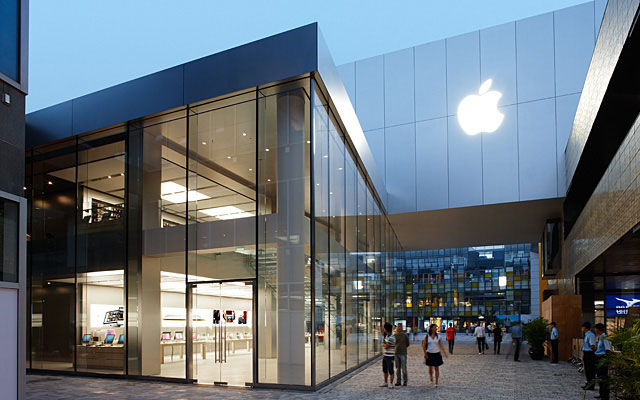Chinese authorities have begun to pressure the nation's massive, state-owned wireless carriers to roll back marketing expenses by as much as $6 billion, an edict that could force cuts to handset subsidies that least one analyst believes may have an impact on sales of high-end devices like the iPhone.

Apple Store in Beijing's Sanlitun neighborhood
China's State-owned Assets Supervision and Administration Commission, which oversees the country's numerous state-owned companies, has asked China Unicom, China Telecom, and China Mobile to slash marketing costs by 20 percent, according to UBS analyst Steven Milunovich. More than one third of those cuts are likely to be handset subsidies, Milunovich said in a Friday morning note to investors, a copy of which was provided to AppleInsider.
Thanks to sales and luxury taxes, iPhones in China sell for $100 or more over their cost in other countries. This premium -- combined with the relatively low per-capita income of Chinese consumers -- has increased the importance of subsidies and other financial instruments, like payment plans, in selling the devices.
Apple would not be the only smartphone maker affected by the cuts, but it does own 33 percent of the market for handsets over $500. Because the Chinese market is relatively immature, Milunovich argues that it is difficult to predict how the market would respond.
"Elasticity of the high-end user remains untested though any subsidy cuts could slow recent momentum," the analyst wrote of Apple's growth in the Asian giant.
In addition to reeling in costs, SASAC also plans to create a new state-owned company that would own and control mobile phone towers. Milunovich worries that this could slow down rollout of China's 4G infrastructure, forcing China Mobile to cut its 4G subscriber targets -- of which the iPhone accounts for the lion's share -- in half, further hampering growth.


